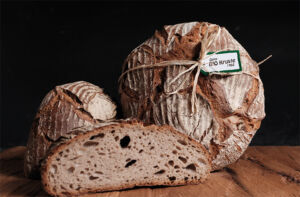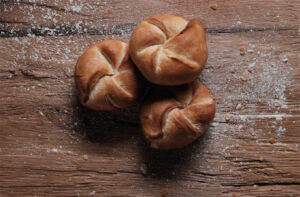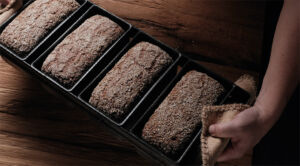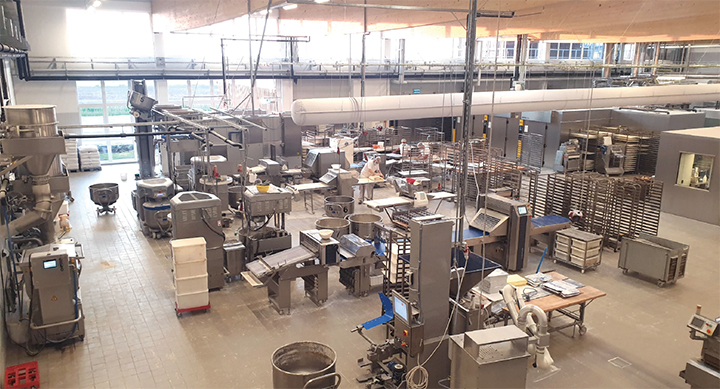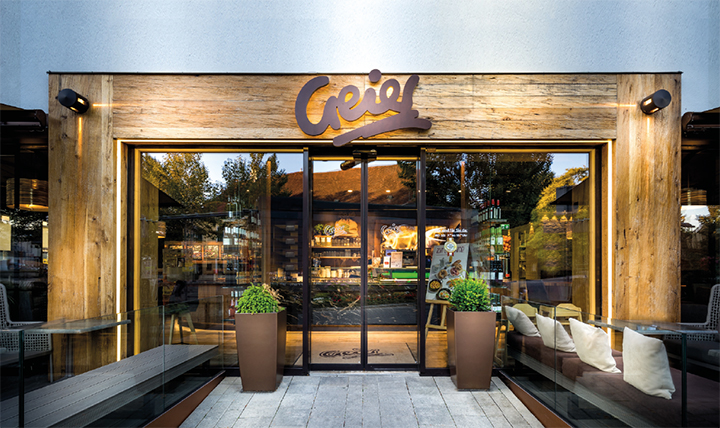
July 2020, in the midst of the pandemic, the Geier bakery moves into its newly-built production in Strasshof, located about 10km east of the Austrian capital Vienna. Everything is right on schedule. The technology is state-of-the-art, and the focus on manual labor remains the same.
You can guess how much organizational talent and enthusiasm must have gone into the move under pandemic conditions. “We pulled it off,” says Gerald Geier, who runs the company together with his wife Erika Geier-Tschernig. Eleven months were spent building, one month was scheduled to test and optimize operations, and another month served as a buffer. The family-owned bakery took the planning for the new building largely into their own hands, supported by the regional planning office.
A short-lived stop occurred during the first lockdown in March, when the installation of the new machines and ovens was imminent and the entry regulations to Austria were unclear. Reports Geier, “We worked largely with a German oven manufacturer and were able to solve the problem through special permits.”
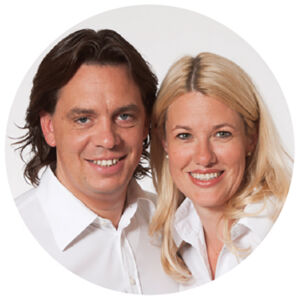
More space for dough handling
Spread over 4,500m2, the new bakery offers significantly more space than the old one. “We put a lot of effort into the run-up to dough production and in dough proofing,” emphasizes Gerald Geier. The bakery roasts seeds in its own roaster-cooker. In general, the bakery attaches great importance to its cooking and pre-doughs for whole-grain breads as well as grain and wheat baked goods. To allow the sponge doughs to rest undisturbed, a 20m2 climate-controlled room was installed in the new building. Space is also needed for dough that requires long-time proofing. Geier works with fermentation times of up to 14 or 18 hours, with flat temperature curves up to 18°C.
The company owner suggests that the new building is currently the most modern artisan bakery in Austria. The focus is on handwork, which is crucial for quality. “Our complete bread assortment is worked up by hand, predominantly, as well as the bread rolls. We work with very soft doughs, which are difficult to be processed by machines.’
The main reason for investing in new technology was to reduce heavy physical work for the 64 employees in production. Therefore, fully automatic tilting lifters and oven loaders were added. Rather unusual for a craft business is the use of the new RFID* bowl recognition system with WINBACK. In this concept, each batch of dough is assigned to a kettle. For the kneading process, the employees push the bowl to the mixer. The mixer recognizes the bowl and thus the dough via RFID and calls up the appropriate program and the desired dough temperature from the IT system. Finally, the water is added directly into the mixer. Once the kneading process is complete, the dough temperature is measured, transmitted to the IT system, and a dough run sheet is printed out to accompany the batch all the way to the oven. A large screen in the bakery clearly displays all processes for the employees. The screen shows when each dough has to be taken out of the dough rest and made ready for further processing. If a defined time window for the dough rest is not adhered to, the bowl tippers would not even lift the batch for the next work step. Gerald Geier: “This is how we achieve process reliability. If the start of the processing fits, the post-controlled processes are basically under control.”
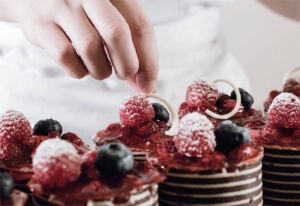
No system change, no experiments
All mixers are integrated into the concept. The bakery uses four identical spiral mixers, three of which were relocated from the old headquarters, with investment being made in a fourth. “For all our new plants, we relied on proven technology. We didn’t want any system changes, no experiments. Customers should not be surprised, but always get the product they expect from us.”
CO2 refrigeration and proofing technology is now available, spanning 460m2, as well as two new rack ovens and three new deck ovens with an automatic loading system. The company uses a stone slab, fired with heating gas to bake rye pastries, as well as wheat pastries, such as French baguettes.
The existing vacuum chamber was joined by a second one, which the bakery uses intensively for Danish pastries and small baked goods (wheat and grain pastries), and in some cases for confectionery as well. “For sand and sponge cake masses, Gugelhupf or cake layers, for example, vacuum technology is very well suited. As soon as fruit fillings are involved, it gets tricky.”
”If the start of the processing fits, the post-controlled processes are basically under control.”
Emphasis on sustainability
At the Geier bakery, production takes place in 2.5 shifts from Monday to Friday, and in one shift Saturdays and Sundays. In addition to making work easier for employees and providing more space for dough maturing, there was another goal: more sustainability. “We support sustainability very intensively,” Gerald Geier underlines. In addition to the photovoltaic system on the roof, energy is recovered by a heat recovery system – the rack and deck ovens, as well as the refrigeration technology, are linked to it – and used for the crate washing system, underfloor heating and ventilation. Short transport distances are also in line with the sustainability concept. “We buy 80% of all raw materials regionally, within a radius of 50km. Our main raw material even comes from the immediate vicinity. Another point is avoiding food waste. The bakery cooperates with food banks, produces bread schnapps, bread beer, granola and bread chips.
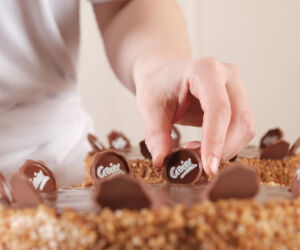
Geier. The Bakery
The pandemic situation and the lockdown phases in Austria have also hit the Geier Bakery hard. The company usually makes 85% of its sales through its own 30 stores – including 10 coffee houses – in and around Vienna. Another 15% comes from the delivery business with major customers. Sales via the online portal hausbrot.at, which grew during the pandemic, also contribute a small share.
The regular range includes 15 breads, 20 bread rolls, 15 Danish pastries, 10 snacks and 18 types of cakes. 25% of the range comprises organic baked goods. In the sweet assortment category, the Plunder pastry plays the main role; in the bread line, it is the ‘Weinviertler Landbrot’ (a mixed rye bread: 80% rye, 20% wheat). The range of pastries varies according to location and season. Snacks are produced centrally in the snack kitchen, with ingredients from the region. The bakery pays attention to variety and seasonality in the assortment. This is because the Geier Bakery wants to appeal to as many different customer groups as possible. “We are broadly positioned,” says the head of the Austrian company, “As well as in our pricing policy.”
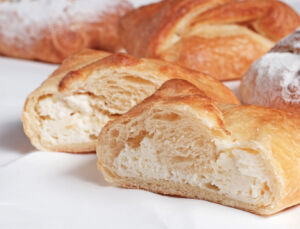
The new production and administrative headquarters
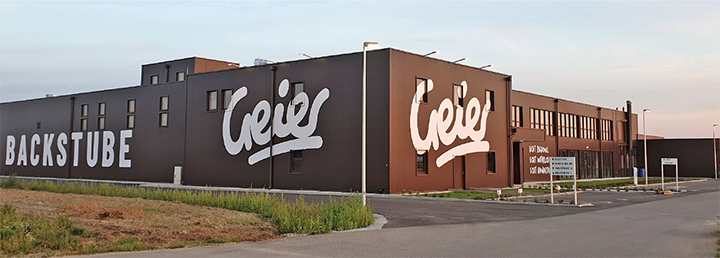
Construction time: about 1 year
Land area: 15,000m2
Operational area: 4,500m2 for the bakery (including confectionery area, separate snack kitchen, and ice cream department), administration, and training rooms.
Investment: double-digit million amount, 50% from own funds
Investments included: new silos, small component weighing, grain mill, fermentation and cooling technology, baking ovens including fully automatic charging as well as photovoltaics and heat recovery.
Technical equipment: Treffler meal and whole grain mill, Tassold silos (seven cells, total capacity 50t), automatic weighing of 15 small components and two medium components from Tassold, four Diosna spiral mixers, KÖNIG roll line Combiline, KÖNIG compact line for Kaiser rolls, Fritsch CTR system (for croissants and wrapped pastries), Fritsch pastry make up line EASYLINE, KEMPER weigher, Rheon dough divider, MIWE cooling and proofing technology (total 460m²), five KÖNIG rack ovens, two MIWE rack ovens, three MIWE deck ovens with loading system Athlet, Aston Food vacuum chamber, Durrer vacuum chamber, Döinghaus ultrasonic cutting machine, PC Data distribution system.
